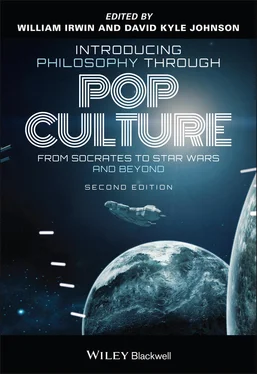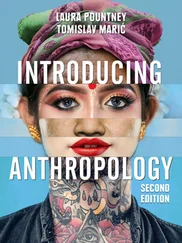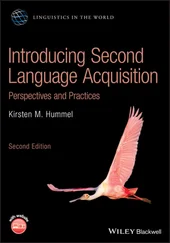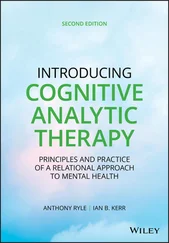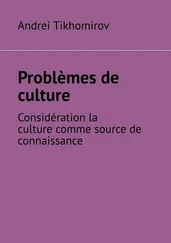T'Challa's characterization might be further criticized for upholding the white colonialist value of passivity and peacefulness in Black people, designed to minimize Black retaliation to injustice. Black anger, particularly Black women's anger, is culturally demonized as less valid and justified than white anger. 18 In this respect, the ultimate victory of T'Challa's peaceful ideology is less revolutionary than some Black audience members would have liked. Moreover, Agent Ross's deterministic account of Killmonger – that he is doomed to reproduce the destructive habits of his training and country – could be interpreted as a pessimistic representation of radical Black politics. Killmonger's efforts to secure resources to liberate Black populations isn't equivalent to the United States' methods of destabilizing foreign powers for its own gain. Suggesting otherwise through Killmonger's narrative glosses over the initial motivation of his actions: the profound oppression of Black people and culture by Western powers.
Varying interpretations do not mean that Black Panther does a poor representational job. Quite the contrary, Black Panther is a film that can elucidate a multitude of Black peoples' experiences and perspectives. The variety of interpretation allows for nuanced discussion about real‐world issues through the lens of the film – a practice of using the epistemic resources Black Panther gives to viewers. Epistemic resources do not need to serve a particular viewpoint, and in fact they should not stray toward only one understanding of the world. To be valuable, an epistemic resource needs to add to our tools of understanding in some meaningful way. Black Panther does this, partly because it can have conflicting interpretations.
So, even though Black Panther is a good epistemic resource, we as audience members and knowers have been ill‐served by the fictions that came before it, which gave us faulty, stereotypical resources to understand and interpret Black and African American experience. In turn, Black and African American people have been ill‐served by previous fictions, as their experience and realities have suffered misinterpretation and stereotyping partially through the fictions in our cultural repertoire. Therein, I suggest, lies an injustice of an epistemic nature.
“We Must Right These Wrongs”
Just as epistemic resources help us to better interpret the world, the absence of certain resources can lead to poor interpretation or misunderstanding of aspects of the world. Importantly, Black Panther was released to a cultural climate in which the representation of Blackness in fiction was severely restricted, and largely remains so, as Anthony Mackie noted. Where Black Panther improves our epistemic resources, minimal and stereotypical Black representation worsens them, and as such perpetuates the social and structural oppression of Black people and communities.
When racism and sexism lead to poor or scant epistemic resources suited to interpreting the world, what Miranda Fricker calls an “epistemic injustice” is committed. 19 This kind of injustice targets those subject to it in their capacity as knowers along the same lines as social identity prejudices, such as racism, sexism, ableism, and so on. 20 Marginalized knowers who are victims of epistemic injustice find it difficult to be believed when they should be, or to make their experiences salient to others through language and culture. 21 As I've described, one way to make experiences salient to others is to produce fictions like Black Panther , which represent experiences and offer the epistemic resources to allow knowers to correctly interpret experience. The historic lack of adequate resources for interpreting and understanding Black culture, possibilities, and experience, leads to these aspects of living as a Black person in the world becoming obscured or poorly understood by other people. Moreover, because the resources available to understand Black lives are largely stereotypical or derivative, so too is much subsequent understanding of Black culture and experience.
The right kind of fiction can help alleviate this sort of epistemic injustice by providing better epistemic resources for interpreting the world and allowing marginalized individuals to articulate their experiences through the fiction, for others to understand. Black Panther in this sense is a case of epistemic justice . It provides plentiful and rare representation, which was produced by a majority Black creative team. It uses the fictional medium of film to contribute to our epistemic resources and improve collective understanding of Black people's experience and possibilities. While all the work to alleviate the epistemic injustice done to Black and African American populations is certainly not complete, Black Panther and fictions like it are part of the remedy. One can only imagine, given all that's transpired in the real world since Black Panther 's release, what elements the Black Panther sequel will incorporate with regard to real and fictional knowledge. Will it continue to seek epistemic justice? Will it a show a world (not just the Wakandan nation) where Black lives matter? Will we see the effects of Shuri's and Nakia's outreach efforts? And how will the sequel deal with Chadwick Boseman's/T'Challa's death? Indeed, this returns us to the paradox of fiction. We know Chadwick is gone and we know his depiction of T'Challa is too. Yet the Black Panther, whoever it ends up being, must live on, especially in our imaginations.
For pop culture resources and philosophical resources related to this chapter please visit the website for this book: https://introducingphilosophythroughpopculture.com.
1 1Bell, B.A. (2020). Actors on Actors: Anthony Mackie & Daveed Diggs (Full Conversation). Variety. https://variety.com/video/actors‐on‐actors‐anthony‐mackie‐daveed‐diggs‐full‐conversation#! (June 28, 2020).
2 2Pohlhaus Jr., G. (2012). Relational knowing and epistemic injustice: toward a theory of willful hermeneutical ignorance. Hypatia 27: 716 .
3 3Pohlhaus (2012), 716.
4 4Pohlhaus (2012), 718.
5 5Pohlhaus (2012), 718.
6 6Gaile Pohlhaus Jr . (2017). Varieties of epistemic injustice. In: The Routledge Handbook of Epistemic Injustice (eds. I.J. Kidd, J. Medina, and G. Pohlhaus Jr. ), 16. New York: Routledge .
7 7Walton, K. (1990). Mimesis as Make‐Believe . Cambridge, MA: Harvard University Press .
8 8Mackenzie, C. (2000). Imagining oneself otherwise. In: Relational Autonomy: Feminist Perspectives on Autonomy, Agency, and the Social Self (eds. C. Mackenzie and N. Stoljar ), 132. Oxford: Oxford University Press.
9 9Mackenzie, 126.
10 10Mackenzie, 126.
11 11Mackenzie, 126.
12 12Mackenzie, 133.
13 13Thompson‐Hernández, W. (2018). Black Panther’ Cosplayers: “We're Helping People See Us as Heroes”. New York Times. (https://www.nytimes.com/2018/02/15/style/black‐panther‐movie‐cosplay.html (February 15, 2018).
14 14Thrasher, S. (2018). There Is Much to Celebrate – and Much to Question – About Marvel's Black Panther . Esquire. (https://www.esquire.com/entertainment/movies/a18241993/black‐panther‐review‐politics‐killmonger (February 20, 2018).
15 15Thrasher.
16 16Thrasher.
17 17Thrasher.
18 18Hooks, B. (1995). Killing Rage: Ending Racism , 14. New York: Henry Holt and Company.).
19 19Fricker, M. (2007). Epistemic Injustice: Power and the Ethics of Knowing , 1. New York: Oxford University Press.
20 20Fricker, 4.
21 21Fricker, 155.
Part III
Metaphysics
Introduction
Metaphysics is the study of the nature of reality. While this often involves questions about the nature of the world, some of the most interesting contemporary questions about reality focus on our understanding of ourselves. We each believe that we have a mind, but what exactly is a mind, and how is it related to the brain? We each believe ourselves to be a person, but what exactly is a person and how can we be the same person over time? Do we really have free will? What about artificial intelligence? Could computers, one day soon, be conscious persons with the same rights as humans?
Читать дальше
